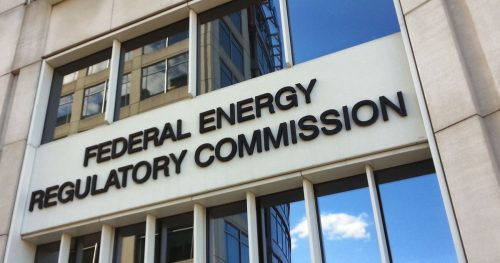
FERC issues ruling on CAISO GIP Proposal – FIT Coalition recommendations reflected in decision
The FIT Coalition now stands ready to assist CAISO in proper and fair implementation of the GIP.
On December 16, the Federal Energy Regulatory Commission (FERC) issued a preliminary ruling on the California Independent System Operator’s new Generator Interconnection Procedures (GIP) proposal. FERC’s ruling generally accepted CAISO’s proposal to combine the Small Generator Interconnection Procedures (SGIP) with the Large Generator Interconnection Procedures (LGIP). While we expect that the elimination of the SGIP will impose significant obstacles on smaller clean energy projects, the FIT Coalition is at least pleased that several of our concerns and recommendations were addressed in FERC’s decision. While the full details of the FIT Coalition’s concerns and recommendation can be found in the regulatory filings themselves, the most important ones that were addressed by FERC are as follows:
- IOU interconnection reform proposals will be treated differently than CAISO’s: One of the most significant aspects of the ruling is that FERC made it clear that California’s investor owned utilities (IOUs) will face a higher standard of review for its Wholesale Distribution Access Tariffs (WDATs) reform proposals. FERC determined that CAISO’s GIP proposal required a less stringent standard of review than an IOU proposal because of the special nature of CAISO as an independent entity with no generation of its own and no incentive to unduly discriminate against small generators.
- Bypassing GIP review: One of our top concerns had to do with ways in which smaller developers could by bypass the lengthy GIP review process when certain criteria is met (Fast Track and the Independent Study Process (ISP)). We argued that CAISO failed to show that their Fast Track and ISP in the new GIP would be just and reasonable options for developers of smaller projects. In its ruling, FERC validated the FIT Coalition position that Fast Track and ISP need close monitoring and reporting requirements so that fixes can be made if, as we suspect, they turn out to be untenable for the vast majority of small projects. This is a solid win for data transparency and for small developers. This element of the FERC ruling also means that reforms to the GIP process can be made after its initial implementation.
- Stakeholder representation: While a narrow interpretation in FERC’s acceptance of the CAISO proposal was good, the FIT Coalition is disappointed that the FERC failed to recognize that key stakeholder groups were not represented in the design process. From the initial CAISO proposal last spring, this was a major flaw in the legitimacy of CAISO’s effort to enact reform. Had appropriate small developer and ratepayer-represented input been reflected from the beginning, the CAISO GIP proposal would have likely been much better for facilitating 20 MW-and-smaller projects. The good news here is that in its decision, FERC strongly implied that the IOUs need to have comprehensive stakeholder processes and show explicitly why their reform proposals will not harm smaller developers.
The FIT Coalition agrees with CAISO’s underlying premise that interconnection process reform is needed in California. Most importantly, we have highlighted the importance of streamlining the GIP process for smaller generators. Our previous blog posts from July and September provide details on how the FIT Coalition worked to influence crucial elements of CAISO’s GIP proposal and FERC’s preliminary ruling. The FIT Coalition now stands ready to assist CAISO in proper and fair implementation of the GIP, and we will be driving further interconnection reforms that support the all-important Wholesale Distributed Generation market segment, which is comprised of 20 MW-and-smaller projects that are interconnected to the distribution grid.

